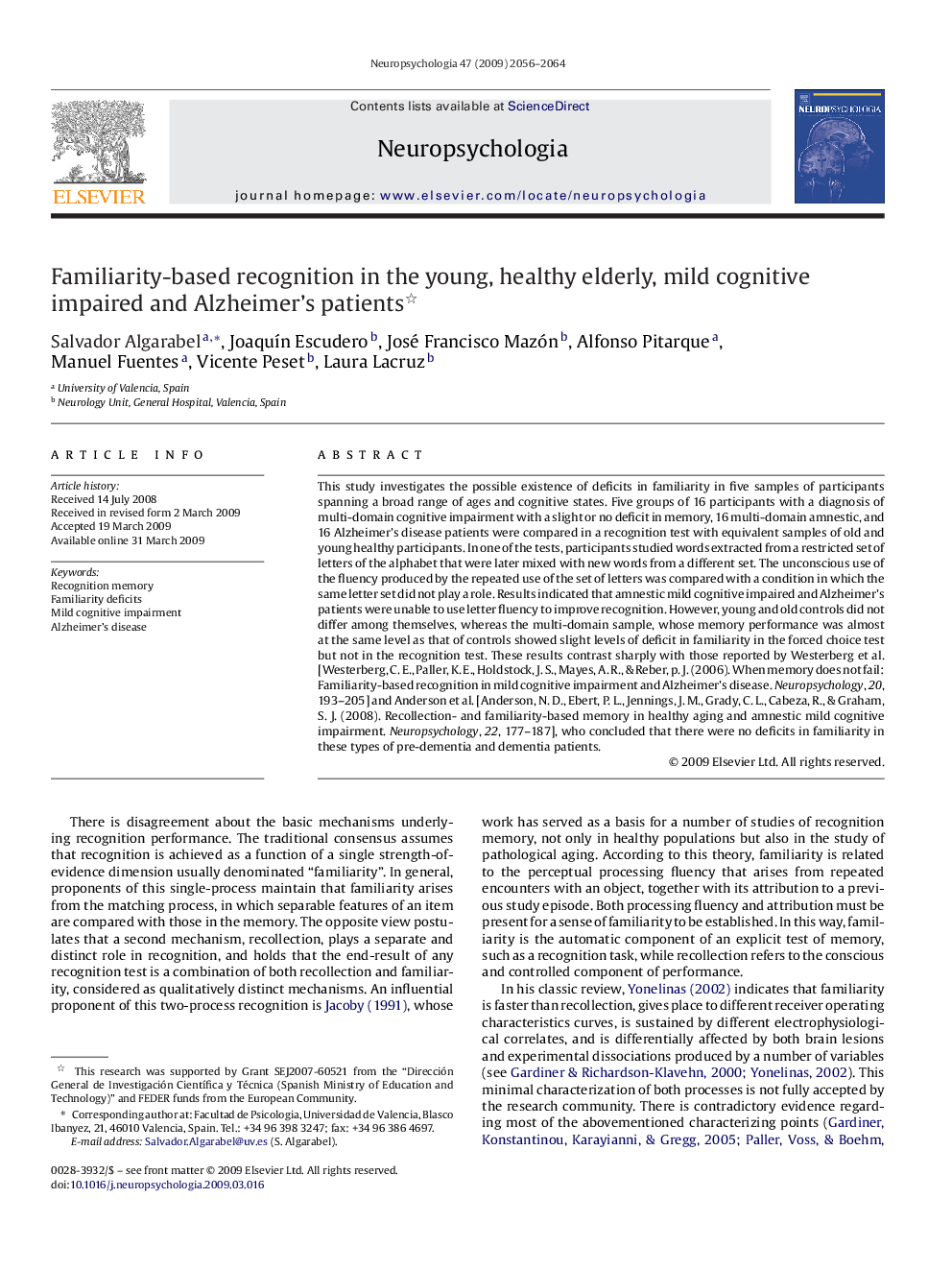| Article ID | Journal | Published Year | Pages | File Type |
|---|---|---|---|---|
| 945231 | Neuropsychologia | 2009 | 9 Pages |
This study investigates the possible existence of deficits in familiarity in five samples of participants spanning a broad range of ages and cognitive states. Five groups of 16 participants with a diagnosis of multi-domain cognitive impairment with a slight or no deficit in memory, 16 multi-domain amnestic, and 16 Alzheimer's disease patients were compared in a recognition test with equivalent samples of old and young healthy participants. In one of the tests, participants studied words extracted from a restricted set of letters of the alphabet that were later mixed with new words from a different set. The unconscious use of the fluency produced by the repeated use of the set of letters was compared with a condition in which the same letter set did not play a role. Results indicated that amnestic mild cognitive impaired and Alzheimer's patients were unable to use letter fluency to improve recognition. However, young and old controls did not differ among themselves, whereas the multi-domain sample, whose memory performance was almost at the same level as that of controls showed slight levels of deficit in familiarity in the forced choice test but not in the recognition test. These results contrast sharply with those reported by Westerberg et al. [Westerberg, C. E., Paller, K. E., Holdstock, J. S., Mayes, A. R., & Reber, p. J. (2006). When memory does not fail: Familiarity-based recognition in mild cognitive impairment and Alzheimer's disease. Neuropsychology, 20, 193–205] and Anderson et al. [Anderson, N. D., Ebert, P. L., Jennings, J. M., Grady, C. L., Cabeza, R., & Graham, S. J. (2008). Recollection- and familiarity-based memory in healthy aging and amnestic mild cognitive impairment. Neuropsychology, 22, 177–187], who concluded that there were no deficits in familiarity in these types of pre-dementia and dementia patients.
